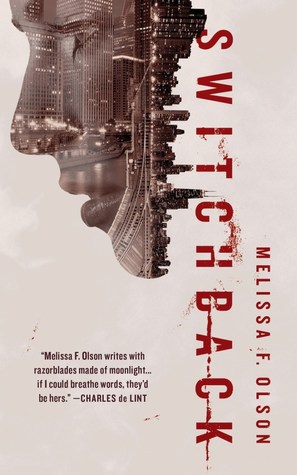 This is the second time I’ve inadvertently read a book from the middle of an ongoing series rather than started from the beginning. Incidentally, both series happen to be in the crime/thriller genre and—due in part to the nature of the genre—both worked well enough as standalone novels (the first more so than this one). The Forgotten Girls by Owen Laukkanen will be the sixth book in his Stevens & Windermere series when it is released on March 14.
This is the second time I’ve inadvertently read a book from the middle of an ongoing series rather than started from the beginning. Incidentally, both series happen to be in the crime/thriller genre and—due in part to the nature of the genre—both worked well enough as standalone novels (the first more so than this one). The Forgotten Girls by Owen Laukkanen will be the sixth book in his Stevens & Windermere series when it is released on March 14.
If you’ve ever seen a crime procedural on television, you’re probably familiar with the facts: that many victims of violent crime are women, that women of color are disproportionately victims of violent crime, and that transients, drug addicts, and sex workers are likely to wind up as victims of violent crime. These are the very demographics that make up the target victims of a dangerous serial killer train hopping around the northern Midwest. It’s a case that falls into Stevens and Windermere’s laps and quickly proves larger and—thanks to the winter weather—tricky hunt for the killer.
Reading The Forgotten Girls was very reminiscent of watching a two-part episode of Criminal Minds that was originally intended to only be one episode—two much story for one episode but not quite enough to comfortably fit into two either. The beginning felt choppy; there were a few too many perspectives from characters that we never saw again and who were only tangentially related to the story at hand, providing more spectacle than substance.
I actually found the way the chapters were broken down throughout the novel to be distracting. Some chapters were longer and contained separations within them, even switching character focuses; others were absurdly short in order to, apparently, switch character focuses back and forth. This became obvious during sequences where the novel felt intentionally and artificially stretched, like there was a chapter and word count target to be met. I’d argue there are three major confrontations within the novel and, while the third and final confrontation is quite compelling, the first two fall flat. There are rapid changes between two perspectives that feel like an attempt to ratchet up the tension and drama, while the whole time it’s obvious how the scene will end up playing out. Similarly, there is one good twist that suffers from happening too quickly and too soon after that second drawn out confrontation; too much time is spent away from the character affected for the subsequent twist to carry the impact it should.
When I inadvertently read the eighth book in Lisa Gardner’s D.D. Warren series first, I found it so compelling that I went back to the beginning and will continue catching up to where I started. The Forgotten Girls, while it stands alone well enough, wasn’t compelling enough to inspire me to restart from the beginning. The dynamics between Agents Stevens and Windermere read like tired clichés that I know I’ve seen a million times on police procedurals. I would have liked to see a little more follow up on the killer’s victims and families after the novel’s climax; there’s only one of the victim’s whose story is really acknowledged in the cleanup and resolution of the novel, despite the fact that there were other victims the reader gets to know through the many changes in narrative focus. Basically, I felt there was too much time spent on the killer and his textbook misogynistic motives and not enough on acknowledging the character’s victims, on giving voice to The Forgotten Girls beyond simply catching the killer and pointing out the backwards thinking/corner-cutting practices in clearly underfunded and overextended local law enforcement. So many aspects of the novel feel tired and redundant.
The Forgotten Girls will be available in stores March 14, 2017.
Advertisements Share this:




